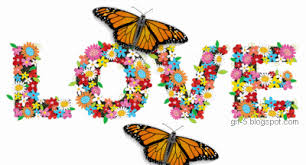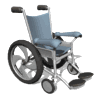
When you judge another, you do not define them, you define yourself.
– Wayne W. Dyer
When I started this post, my title was 10 things you need to know about disability, however, once I got started I could not stop and had to add some additional points along the way. I am therefore not going to number the points.
How do you view disabled people – the ones who are physically disabled where the disability is obvious as well as those with hidden disabilities, like those who are Deaf? Do you see them as people with diagnosed conditions which present obstacles that need to be overcome, when, in fact, people are disabled by the lack of accessibility of our environments and through ignorance of able-bodied people?
Disability is not an illness/sickness:
Asking questions like “how’s your health now?” implies that the disabled person is ill. Even if the disability is temporary, it’s still not an illness. The disabled person can be perfectly healthy in all other aspects but be disabled.
Disabled people are not wheelchair bound:
How often have you read a newspaper or magazine article about wheelchair-bound people? Being wheelchair bound implies that the person never leaves the wheelchair, that they have their bums glued to the chair, never to get out of it ever again.
People use wheelchairs as a means to get from point A to point B. Just like someone using crutches or other walking aid uses it to get from point A to point B. People who use wheelchairs don’t shower/bath in them, they don’t sleep in the wheelchair. They sit on a chair or couch just like any able-bodied person would, they sleep in a bed just like everyone else.

I don’t consider myself to have a disability:
• Being disabled from birth, I don’t know any other way of life. Becoming disabled later in life was not by choice, so I have no other option but to adapt.
• Having a disability is different to “being disabled”
• I am not my disability – I am just a person so don’t describe me as “that beautiful girl/woman in a wheelchair”. It’s the same as saying “that fat girl/woman over there” in other words, the words we use discriminate.
• Disabled people are not seen as being equal to those without disabilities, which is a difficult thing to know especially because we have done nothing wrong.
Its not about being more or less able, it’s just about differences:
• Society (generally) talks and thinks about disability as “us” and “them” when, in fact, everybody has a disability – some more visible than others.
• There are physical, academic, social and creative disabilities. We are all just differently-abled.
People actively discriminate against disability:
Discrimination comes as a result of ignorance. We can raise awareness as much as we like but it won’t necessarily change things.
Some simple things are difficult for me, but that does not mean I’m not talented or capable:
• I am extremely talented and creative but things of a physical nature (like walking long distances and climbing stairs) are difficult for me.
• The things I find difficult to do make me compare myself to others more than I should.
• A lot of the prejudice is the result of not being aware of the needs of others because of being too self-centred.
Disability is massively misunderstood:
• Disabled people are a rich and diverse scope of human expression.
• Working with disabled people is one of the most creative environments where all people share a common goal; to learn, to be and to have positive experiences with others. Connecting with others, no matter what the differences are.

I keep my disability a secret:
• Having a physical disability makes me vulnerable to falling easily and leaves me vulnerable to criminals who see me as a soft target. As a result, I stay home more than I should because the environment outside my house is not safe (roads/pathways are uneven or not accessible for whatever reason, buildings are mostly not accessible – doors which are not automated, steps/stairs outside and inside the building etc)
• Many people don’t respect (or give a thought) to what disabled people go through daily. It doesn’t matter what the differences are, it’s about being treated equally and with respect.
Don’t be afraid to ask somebody if they have a disability, but do it respectfully and without judging:
Physical disabilities are obvious, but the physically disabled can read, speak, some can walk limited distances using crutches or other walking aids, capable of being gainfully employed if given the chance, and free to use their brains creatively and constructively.
Things are slowly improving:
• Since the Paralympics in 2012, disability has been portrayed in the media in a more positive way.
• There is still no equality because the environment has not changed to being a fully integrated one. I’ve been in hotels where they have ramp access outside, a room which is accessible for wheelchairs but the television is mounted on a wall bracket high up on the wall so if there is a problem with the remote control unit, you cannot operate the television manually – you have to wait for assistance. The other obstacle I’ve encountered is when I ask for a room with a shower, I’m given a shower where I have to climb into the bath in order to shower – why would I specifically ask for a room with an accessible shower if I could climb into the bath?
• Awareness is better, but education about disability and people with disabilities should become more prominent and the media can and should play an important role in this.
• Everybody does things differently – everyone is unique. Let’s embrace this idea.
• Everyone is disabled in some way, in the same way that everyone is able.
People think my brain is not good enough, but I am more than capable.
There are certain jobs I will not get because people think I cannot do it, but I can and I am very capable. With a few minor adjustments to my working environment, I can do the job.
Living with a disability is unfair:
• My disability makes me feel a lot of emotions that people don’t think about. I am scared, I feel judged, I get nervous and anxious and I think too much.
• I wish I could do simple things like go for a walk (or a stroll in my wheelchair) around my neighbourhood, but always feel like people are staring at me because I’m different. There’s also the criminal elements to worry about being vulnerable and a “soft target” for those who want to take advantage of me.
• I wish I could be seen as equal.
Disabled people are not brave:
• Disabled people are not brave because they are disabled.
• Being disabled from birth is the only life we know. If we became disabled later in life, we had no choice but to adapt. We were forced by our circumstances to adapt.

Inspiration porn disables the disabled:
Using disabled people like a “prop” to motivate able-bodied people is equivalent to objectifying people with disabilities. It creates the wrong kind of hero.
Some examples of inspiration porn:
• Shames the viewer by showing a disabled person overcoming basic obstacles, implying that anyone less disabled has no excuse.
• Focus on individuals helping people with disabilities, suggesting that others should help too, centering attention on the helper and not the person being helped. A good example here is “raising funds for the disabled”. The fundraiser is seen as a “saint” or “hero” because they are helping the “less fortunate”.
• Taking a disabled person as a companion to a function (Matric Ball or any other social function) just to make them feel “normal” or “included” – using them as a “prop” to make you look and feel good. Again, focussing on the “kind person” making him/her the hero.
There is absolutely nothing wrong with helping a person with a disability if they have asked for help, but it’s the way the story is told that hides the real issues faced by the community of disabled people. When assisting a disabled person, do you
• Ask permission to help before objectifying the person to your need for an ego boost?
• Do you consider the fact that people with disabilities have the right to expect privacy? Carrying someone up a flight of stairs might boost your ego and make you look like a hero/compassionate person but have you thought about how undignified the disabled might feel?
Inspiration porn highlights the need for more awareness around the social model of disability
Click here

Photo by: Tami Magnin @rumtumtiggs
Society (in general) still sees disability through the eyes of the medical model, i.e. diagnosed conditions present obstacles that need to be overcome, when, in fact, people are disabled by the lack of accessibility in the environment around us.
• Stigma makes it difficult for people with disabilities to have close friends. The stigma disables.
• The perception of disabled bodies as non-sexy is disabling, not the bodies themselves.
• The person in the wheelchair is not disabled by the wheelchair but by the buildings that don’t have automated doors and wheelchair ramps instead of steps/stairs and a society that does not provide sufficient community-supported assistance.
Disabled people need to be more than token employees and social companions and objects of pity. We need more than policies that look good on paper with no real implementation or monitoring of the implementation to change the current norms.
We need to have REAL CONVERSATIONS about KEY ISSUES.
THE POSITIVE SIDE TO BEING DISABLED:
• I would not be the person I am today (humble and filled with compassion) if I did not face the challenges I have in my lifetime.
• I had a mother who believed I could do anything if I just tied hard enough and she spent her entire life devoted to helping me take that step out of my comfort zone, trying to delete the words “I can’t” from my brain.
Some of this material has been taken from:
Inspiration porn further disables the disabled: Click here










